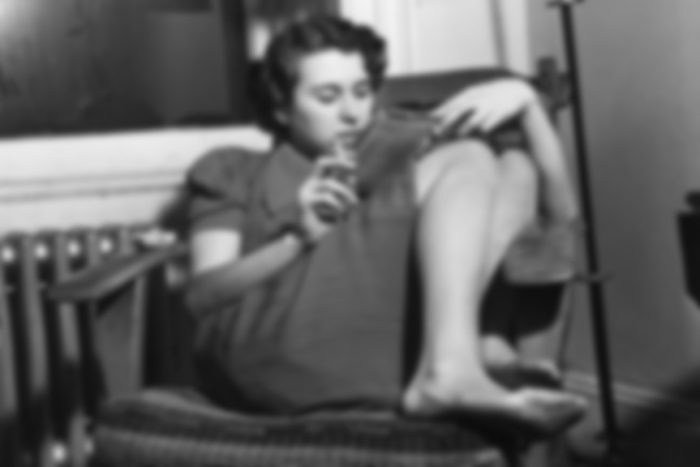The Wine Sniffer
by Alexander Carver
“Perhaps you would care for a table upstairs by the window,” the maître d’ said, blocking our pathway into the dining room after a few words of French had sputtered from our mouths.
“Upstairs? Well…sure,” I said, a bit confused because all the tables on the first floor were available, save one.
“That sounds lovely. By the window would be lovely,” my new bride said, injecting her usual enthusiasm into the moment.
It was the end of our first full day in Paris, and Eva and I were trying our very best to play the role of the good Americans. Happily honeymooning, well-behaved, notably courteous and conforming, good Americans. We had just enjoyed a bottle of wine on the patio at Les Deux Magots, and felt that the waiter had rewarded our polite behavior, and attempt at speaking French, with a small bowl of pretzels. Sure, everyone else had been treated to the pretzels, too, but at least we hadn’t been denied them for being suspected disciples of Donald Trump.
Upstairs at Brasserie Lipp, we were escorted to a corner table next to a narrow, dirt-streaked window, which would have looked out onto the bustling Boulevard Saint Germain, if we could have seen through it. About twenty minutes after the maître d’ handed us our menus, the waiter made his first appearance. I’d never thought of France as being a nation of giants, but this man was a six and a half footer–almost as wide as he was long—with big, dark, hostile eyes like 8-balls, which caused me to drop mine towards the table when they fixed themselves on me. I was already tense because I’d left my wallet back at our Airbnb and was being forced to live off my new wife for the evening. Though I rationalized my dependency by reminding myself that only a few days earlier, Eva and I had vowed to share all our worldly possessions–which technically included the contents of her purse.
Taking our order, the waiter switched from exemplary French to stilted English when we came up lame in his native tongue. I selected the second least expensive bottle of Bordeaux on the menu and the least expensive entrée, the pâté en croûte pistaché salade. Eva ordered the filet de boeuf en sauce béarnaise, the most expensive item on the menu, winning her sole attention from our massive waiter, who ignored me and my friendly smiles throughout the rest of the meal.
Before departing to place our order, the waiter grabbed the half empty basket of bread from the deserted table next to us, set it down in front of me, turned on his heel, and pranced off towards the kitchen. I examined Eva’s astonished expression, then peered into the depleted bread basket to find three remaining slices from a no longer fresh baguette.
“Did he just give us someone else’s used bread?” I said.
“Yes, he did,” she responded, leaning forward to get a closer look inside the tainted basket.
“Well, what was that about?”
“I don’t know. I’m kind of in shock.”
“Do you think maybe that’s a thing here? Everyone shares everyone else’s bread?” I said.
“No. I don’t.”
“So, you think he was just being a dick?”
“I think he was just being a dick.”
“Unbelievable.”
I was starving, having only had a few pretzels at Deux Magots, so I reached into the basket and pulled out a slice of bread.
“Do you want a slice?” I asked Eva.
“I am not eating that bread,” she responded.
The anger and repulsion in her tone told me that I shouldn’t eat it either—so I dropped the chunk of bread, picked up the basket, and set it back down on its original table. An action that changed Eva’s expression from someone who was etching a strike in her mind against the character of the man she had just married, back to neutral.
The Brasserie Lipp had been a big haunt of famous American expatriates in the 1920’s, and an even bigger haunt of American tourists ever since. Wide-eyed, loud-mouthed state-siders, looking to lasso the spirit of Ernest Hemingway, Scott Fitzgerald, Gertrude Stein, and the rest of the once in a millennium gang. A legacy that helped me understand, if not condone, the anti-American sentiment at such a celebrated restaurant, where the wait-staff was afflicted with unilingual American tourists at lunch and dinner every day of the week. Another, and possibly even greater contributor, was the fact that waiters in Paris don’t work for tips. Tips are factored into the bill. So, there really is no incentive for them to pretend to like anyone, much less the dreaded American tourist.
Attempting to shake off the Lipp experience after dinner, Eva and I strolled down the cobblestoned alleyways of the 6th Arrondissement, and like good little tourists, sought out Pablo Picasso’s studio at 7 Rue des Grands Augustins. We snapped iPhone pictures of each other hamming it up beside the commemorative plaque on the wall, and then continued down the exclusive street, peering into the gallery windows to find out what art was fashionable in Paris that spring.
Fearing our blood/alcohol level was dropping, we ducked into a trendy little watering hole a few blocks from Picasso’s pad called Prescription Bar. Inside it was candlelit and dark, other than the abstract paintings hanging on the walls of an unnerving green subject matter, reminiscent of plasma, you wouldn’t want to contemplate twice before bedtime.
The alcohol count for the newlyweds at that point was two beers with lunch, a 4 o’clock bottle of wine at Deux Maggots, and a second bottle with our begrudgingly served dinner at Lipp. Figuring we had already gone that far with our drinking, we decided to go the distance. Like most weddings, ours had been stressful, and our frayed nerves required a slightly higher alcohol intake then they did during any other week. At least that’s how we justified all the empty bottles we were leaving behind us. Deciding to take it up a notch at Prescription Bar, we asked the young, smiley-faced bartender if they served absinthe. He laughed for some reason, probably another American tourist thing, then told us they didn’t serve it straight, but that they made a cocktail with fruit juice that had absinthe as one of its ingredient. We nodded eagerly when he asked if we’d like to try it, then drank it down quickly after it arrived in tall, narrow glasses, featuring wedges of pineapple, harpooned by tiny umbrellas. The cocktail possessed an obscene amount of sugar, but otherwise tasted innocently enough, though we knew from what we’d read about absinthe, that it would creep up on us eventually.
“Is it me or do the bartenders in Paris pour a ton of sugar in their cocktails?” I asked Eva, whose eyes looked as dazed as mine felt after we’d downed our drinks.
“I was just thinking that. There’s an inch of sugar at the bottom of my glass. I need a spoon to finish my drink.”
I laughed. “Not the worst thing in the world.”
“No. And with all the walking we’re doing the calories will just drop right off. Do you wanna get one more?” Eva said, as she used her tongue to scoop out the sugar she’d worked to the top of the glass in a method not lost on the bartender.
“No, let’s hit the streets again,” I said. “We’re only in Paris a week and I don’t think we should repeat an experience when there are so many more experiences out there waiting for us.”
“That sounded very writery,” Eva said with a laugh.
“What did?”
“What you just said about experiences. Is that a quote from something you wrote?”
“No, I just came up with it. Why? You think I should put it in something? What was the quote again?”
“Something about repeating experiences. Can’t remember.”
“Well, it couldn’t have been that good if you don’t remember it and I just said it two seconds ago.”
“I guess I just I don’t feel like trying to remember things right now,” Eva said. “I feel like doing things. You’re right, there are experiences out there waiting for us, and all we’re doing is sitting here with empty drinks talking about them.”
“Oh, now you remember what I said. When it suits your argument. Okay, let’s hit as many cool bars as we can…until we can’t anymore,” I said.
“I’m game,” Eva said, placing a handful of euros on the bar. “We can always come back here another night if we want another one of these sugary absinthe drinks.”
“No, we can’t! One and done, remember?”
“Oh, right. I forgot. One and done.”
We slid off our barstools and headed for the door. Before stepping outside, Eva turned back towards the bar and said, “Goodbye, Prescription Bar. Sorry, but we will never pass this way again.”
I laughed. “Nice exit line,” I said, taking Eva’s hand and leading her up the art gallery lined street.
Eva and I don’t remember the name of the bar we entered next, probably because the absinthe had already kicked in, making us less aware of physical details and more aware of emotional ones. But I do remember that the first thing I noticed was a red sign above the bartender’s head advertising bottles of wine for 20 euros. The previous bottles we’d purchased that day were in the 30 to 40-euro range, and so I happily ordered a bottle with two glasses that Eva happily purchased. I couldn’t recall ever buying a bottle of wine in a bar in America and I liked the novelty of it, along with the price.
With the open bottle in hand, Eva and I sat down on a pair of wood block chairs, at a wood block table, which made me feel like an actor in a low budget play back in Los Angeles. The dim lighting, set design, and staging, all appropriate for the surreal scene we were about to act out with the young French couple that sat down next to us…
The wine glasses the bartender gave us were as small as they come, like shot glasses with stems, and after we drank our first glass, a tall, handsome Frenchman with a face as unshaven as mine, sat down at the wood block table next to us with his equally attractive blonde-haired date. I say date, instead of girlfriend or wife, because unlike me, he wasn’t wearing a brand-new wedding band, and because there was a stiffness between them that implied a lack of familiarity and comfort, like two people on a first date. Apart from those observations, it was soon apparent that he was trying to impress her by what he said to me after sitting down and eyeing our bottle of wine.
“You are American, no?” he said.
I laughed. “Yes. What gave me away?”
Ignoring my question, he pressed on with another one of his own… “Did you purchase bottle of wine here?”
“Uh…yes. Right here at the bar.”
His questioning the obvious confused me and I wondered if it was due to his lack of familiarity with the English language.
“This is not the place to order bottle of wine,” he said, turning a bright white grin towards his blonde date.
“Oh, well…we’re not from around here,” I said. “The wine’s actually not too bad. Right, Eva?”
“Yeah, it’s pretty good.”
The Frenchman eyed Eva incredulously and then eyed his date again. The date seemed bored by the topic and kept her eyes averted from us, looking out through the open doorway towards the street.
Attempting to extract myself and my new wife from the conversation, I pivoted my body away from the annoyingly handsome Frenchman and squared it with Eva’s. I smiled at her and then moved my shoulders to the beat of “Pump up the Jam” the 80’s techno song playing in the bar—an action I hoped would convey to him that we wanted to be left alone. Eva laughed tensely at my attempt at physical comedy, then tried to make me laugh at her own funny dance moves. A few moments passed before the Frenchman inserted himself back into our evening.
“Do you mind if I look at it?” he said, reaching towards our wine bottle.
“Uh…no, go ahead,” I said, gesturing politely with my hand.
He grabbed the bottle by the neck, held it to his nose, and sniffed the contents. Then, offended by its bouquet, he made a sour face, set the bottle down, and without another word to us, stood up, and ushered his blonde date over to the bar.
I turned and looked wide-eyed at Eva. The anger over what the Frenchman had done having yet to seize me. Disbelief is always my first reaction when cruel people treat me cruelly.
“What was that all about?” I said to Eva.
“He was just trying to impress that girl,” she said.
“So, he sniffs our wine and then scoffs at it?”
“I guess so.”
“What the hell?” I said, eyeing the wine sniffer, now leaning against the bar.
“Let it go, Andrew. It doesn’t matter.”
“It doesn’t matter? That guy just tried to make a fool out of me.”
“Okay, calm down. He’s not worth getting upset about.”
“Of course he is. I’ve had it with these French people. They don’t like Americans? Well, fine, I don’t like them either. Screw it! I’ve been defending these French pricks for years, saying they’re not as bad as they seem–and this is how I get paid back for it? By some pretty boy sniffing my bottle of wine and then making a face at me?!”
“Lower your voice, Andrew. We’re not in America. People act differently here.”
“Do you know what Ernest Hemingway would’ve done if that wine sniffer had done that to him? He would’ve taken him outside and kicked the shit out of him.”
By that point my anger had been fully realized.
“Well, thank God you’re not Ernest Hemingway.”
“Yeah, thank God for that asshole!” I said, gesturing at the Frenchman.
“Please lower your voice. I don’t want to have to bail my new husband out of a French jail.”
I reached for the bottle the wine sniffer had so vehemently objected to and filled my little glass to the rim–all the while keeping my eyes trained on the bar.
“It almost feels morally wrong not to do something about this. At the very least I should go over there and tell him he’s an asshole,” I said.
“Please don’t.”
“No! I should go over there and grab his beer, take a sip, and make a sour face right back at him.”
“Please don’t do that either.”
“I’ll take a sip of his beer and then spit it in his face and tell him that the next time he sniffs someone’s wine and makes a face, I hope the guy’s in the Mafia and he ends up at the bottom of the Seine.”
“I don’t think they have the Mafia in this country.”
“Of course, they do. The Mafia is everywhere.”
“Okay, I think it’s time we go to the next bar,” Eva said, reaching for her little black purse.
“Not until I’m finished drinking my bottle of shitty bar wine,” I said.
I chugged my little glass of wine, grabbed the bottle in question, and filled the glass back up to the rim.
“Well, I’m going downstairs to the bathroom. Could you please try and cool off before I get back?”
“Eva, I don’t think you quite understand the lack of civility we just experienced. It’s not the kind of offense someone just cools off over during the course of a two-minute bathroom stop.”
“I understand that, but you have to try and get over it. Because I’m not sure you understand that you can’t get into a fight in a foreign country, where the judicial system will be heavily biased against a belligerent citizen of a country they unanimously despise.”
“Belligerent?”
“Getting there…”
“Hey, you’re the one who’s getting belligerent. This little incident is not going to end up in Federal court, so you can just calm down about that.”
“Look–I’m just saying that if you start a fight it’s going to be everyone against you. And the French police will come in here and ask what happened and everyone will say you started a fight for no reason and you’ll get arrested…and, yes, probably end up having to defend yourself in court because you can’t afford legal representation because we’ve spent all our money on our honeymoon.”
“Okay, please go to the bathroom. I want to be alone so I can finish my shitty wine in peace.”
When I’m good and angry and at war inside my head, I tend to turn on even those I value as my most beloved and trusted allies. It’s an odd and inexplicable tendency. A need to cast everyone aside with a few harsh words, so I can brood by myself in some sort of self-destructive, go-down-fighting-alone impulse. It’s not rational. It’s not healthy. It’s not effective.
While Eva was downstairs, I sat at our cubed little table looking towards the brightly lit bar trying to will the wine sniffing Frenchman to look my way. But he never turned his head. I could tell he was aware of my psychotic stare by the way he was overacting his role of fascinated listener as his date regaled him with her words, but with impressive poise–which I envied–refused to acknowledge my attempt to reengage him. Soon, Eva returned and took her seat next to me. She, too, was angry by that point. Angry at the Frenchman. Angry at the interruption of our magical day in Paris. And angry at me for not having the emotional self-discipline to shrug it off and go back to having a fun night. Discovering the wine bottle was empty, Eva reached over, grabbed my full glass of wine, and drank it down in two gulps. It was a dramatic move for which I was quietly impressed.
“Okay, let’s get out of here,” I said.
As we walked out of the bar, my eyes stayed fixed on the wine sniffer’s face, but he went right on enjoying his evening, more so now that he had ruined ours.
Heading back along the sidewalk towards Picasso’s, I recited aloud for Eva the litany of offenses we had incurred that day–from being treated like 2nd class citizens (or 2nd floor citizens) at Brasserie Lipp, where we were given another table’s used bread, to the unnecessary cruelty of the wine sniffing Frenchman ridiculing my choice to purchase a bottle of cheap wine at a dive bar.
“Andrew, I’m not going to let you turn our honeymoon into a war against the French Republic,” Eva said, after I’d finished the list and thoroughly psychoanalyzed the rude behavior of some of its contributors.
“Hey–you’re acting like I’m the one misbehaving here. All I’ve done—all we’ve done–is smile and be friendly, while sitting there taking one slap across the face after another. It’s obvious that whether it’s Trump’s fault for the way we’re being treated, or not–the majority of the French people hate Americans and are finding every opportunity to let us know just how much.”
“Well, let’s face it, Trump is a prick, and you can’t blame them for holding it against the Americans for electing him!” Eva said.
Immediately after she said it, she looked like she regretted it. I spotted the look of regret, but like anyone who wants to win an argument, I pounced anyway. The absinthe was now working together with the cheap wine and the French people to ensure that enough gas was thrown on the fire to produce a significant explosion right there in the 6th Arrondissement.
“Wait. Are you taking sides with the French against me?! Against your husband?!” I said. “Okay, that’s it. I need to be by myself. I need to take a walk. I need to take a walk by myself.”
“What?! It’s midnight. Where the hell are you going to go?”
“Don’t worry about it. Grab an Uber and I’ll meet you back at the apartment later. I need to be alone right now. It’s my right as an individual human being to be alone if I want to be alone. Marriage doesn’t change that!”
“FINE! GO BE ALONE!”
Drunk and irrational, I started down the sidewalk at a quick pace, turning to give Picasso’s studio another glance as I passed by it.
“Do you even know how to get back to the apartment?!” Eva shouted at me, with a touch of irony in her voice.
“I know the address: 15 Rue Paul Delong! 2nd Arrondissement!
“Lelong! Not Delong!”
“Paul Lelong! I know!”
“Andrew? ANDREW? Do you really know your way around this city?”
“Of course I do! This is my 5th time in Paris, remember?!”
The truth was I knew all the tourist haunts on the Left Bank in the 5th and 6th Arrondissements where Hemingway had once lived, like the Dome, the Closerie des Lilas, Notre Dame, Shakespeare and Company, but we were staying in the 2nd Arrondissement, on the Right Bank across the Seine, far away from anything I remotely recognized, and it took me two and a half hours to find my way back to Eva.
Of course, there were other complications. I had been too cheap to purchase an overseas cellphone plan, rendering my iPhone useless for navigational purposes. Also, as I said, I had forgotten to bring my wallet, so even though I knew the address on the Right Bank where we were staying, the taxi option to transport me there was unavailable to me as well.
At first it was thrilling to be lost in the most charming and beautiful city in the world, in the middle of the night, drunk, and getting drunker, as the cheap wine continued to infiltrate my bloodstream. It was like being in a giant labyrinth, where I couldn’t find the end, but thought I recognized several locational clues, which didn’t turn out to be clues at all. After an hour of stubbornly thinking I could find my way back to the apartment without asking for help, I finally gave in and began asking other late-night carousers if they knew how to get to Rue Paul Lelong. The darkness, my poor French, their drunkenness and mine, all working against me.
It worked like this… I’d step in front of someone and blurt out: “Rue Paul Lelong? Rue Paul Lelong?” And then, when they shook their heads uncomprehendingly, I’d mispronounce: “Rue Montmartre”.
To which they would inevitably respond: “No, no, I am sorry,” and quickly shuffle away.
Eventually, I resorted to yelling: “THE LOUVRE! THE LOUVRE!”, which I knew was fairly close to our apartment, and someone would give me complicated directions in broken English, which I was too drunk and too navigationally challenged to follow.
It was the dead of night and there were only so many people who appeared in front of me, not one of them American. Soon, I began to panic, thinking that Eva was back at our Airbnb worried out of her mind. Thankfully, I had worn my red New Balance sneakers that day, so I decided to turn my nightmarish predicament into an opportunity to get some exercise, and began jogging down street after street, stopping to peer up at the little blue signs on the corners of the buildings revealing the name of the street and number of the arrondissement or district of the city.
My jog took me from the 9th Arrondissement to the 3rd to the 4th to the 2nd–where I must have been close to home–then back to the 3rd, and somehow all the way back to the 9th, where, when I saw that the little blue sign above read: 9 Arrondissement, I collapsed on the curb and broke down in tears. Like many lost and helpless people, I then turned to religion and accepted God back into my life after a decade long hiatus, promising that if He got me out of this jam and safely back into the arms of my beloved wife on the 5th floor of an apartment building on the elusive Rue Paul Lelong, I would never drink again…at least not absinthe.
Finally, somewhere in the 3rd Arrondissement, I asked a young, dark-haired woman walking her dog, if she could direct me to Rue Montmartre, the main thoroughfare that ran perpendicularly to Rue Paul Lelong. Like the others, she didn’t recognize the name of the street due to my horrendous pronunciation, but wisely handed me her cellphone, so I could type it into a Google search. She then found a map and gave me directions for the half mile distance home.
“You see streetlight at end of the block where big statue is?” the woman said.
“Yes! Yes! I see it! The big statue!”
“Go to light and then go left and then go for five minutes and then you will take another left and then you will find Montmartre,” she said.
I thanked her profusely and gave her a hug, and she seemed charmed by the plight of the desperately lost, cellphoneless American, and I thought: “Well, she certainly makes up for all the other French assholes that led me here tonight.”
When I arrived back at the apartment, I raced up the four flights of stairs, and opened the door, expecting to be greeted by my devastated wife, only to find a single light burning by the window and Eva upstairs in the loft, sleeping. Apparently, the absinthe had been bad for some things and good for others, like putting Eva soundly to sleep, free of worry. I stripped off my clothes, crawled into bed next to my bride, wrapped my arms around her, and slept until noon.
…
A few days later, when we were back to being best friends, Eva and I decided to make a return trip to Brasserie Lipp–one for which, this time, we, not the French, would set the terms.
“Let’s go back there and really American it up,” I said, as we sat on the rooftop patio of our Airbnb, drinking wine, and listening to the sentimental playlist from our wedding.
“But, I thought we weren’t going to repeat any experiences in Paris,” she said.
“That’s true. But I think this experience needs to be repeated so we can both feel better about it years from now when we’re reminiscing about our honeymoon.”
“Okay,” Eva said. “And maybe it’ll be good for me to try and be a little less nice for a change.”
“You could probably benefit from being a little less nice…yes,” I said.
To appear as American as we could, we both wore our bright red Phillies baseball caps, flannel button down shirts–rolled up to the elbows–blue jeans, and the his and hers cowboy boots (a wedding gift from my Colorado cousin) we had lugged all the way from L.A.
To the chagrin of the same Maître d’ we had experienced during our first visit to Lipp, this time I insisted on a table on the first floor, and vehemently pointed to an available one facing the entrance of the restaurant. After our assorted cheese plate appetizer, Eva confessed to me that she had never eaten squid ink pasta before, one of the specials that night, and I insisted she try it. I ordered the same, and when the mounds of pasta arrived on large oval plates, she was baffled to discover that squid ink meant actual ink. Black, teeth-staining ink. After I had twirled a length of pasta onto my fork and shoved it into my mouth, she looked across the table and saw that the ink had turned my front teeth black. Realizing that her teeth were likely mirroring mine, she wiped at them with her napkin after each bite, and later swished water from her water glass as well. As she wiped and swished, the uptight, middle-aged French couple seated next to us watching her performance, whispered back and forth to each other in exasperation.
After dinner, while we waited out on Boulevard Saint Germain for our Uber to arrive, I said to Eva:
“You were really working that napkin at dinner. And all that water swishing, too. Did the squid ink really bother you that much?”
I was legitimately worried about the newly introduced neurotic eating habits of the woman with whom I had agreed to spend the rest of my life.
“No,” she said. “I just noticed that the French couple next to us were disgusted by it–so I kept doing it more and more to gross them out.”
“Wow. I had no idea you were like that.”
“Well, I am,” Eva said with a grin, as the white Prius we were waiting for came into sight.
“That’s fantastic!” I said, grabbing her hand and leading her into the backseat.
“Take us to the Eifel Tower please,” Eva said to the driver. “We’re Americans and it’s mandatory that we get a picture kissing in front of it at night.”
The driver laughed, completed a harrowing U-turn, and then drove the Americans off to get the money shot that would hang in their bedroom for the next 40 or 50 years.
BIO
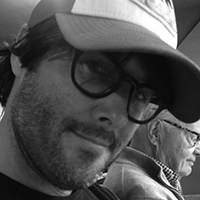 Alexander Carver’s stories have appeared in ZYZZYVA, Foliate Oak, The Satirist, The Southern Pacific Review, and Dark Matter. His story “Uber Trouble” was a prize winner in the Razor Literary Magazine short fiction contest. As well as being an author, he is also a produced playwright and screenwriter.
Alexander Carver’s stories have appeared in ZYZZYVA, Foliate Oak, The Satirist, The Southern Pacific Review, and Dark Matter. His story “Uber Trouble” was a prize winner in the Razor Literary Magazine short fiction contest. As well as being an author, he is also a produced playwright and screenwriter.

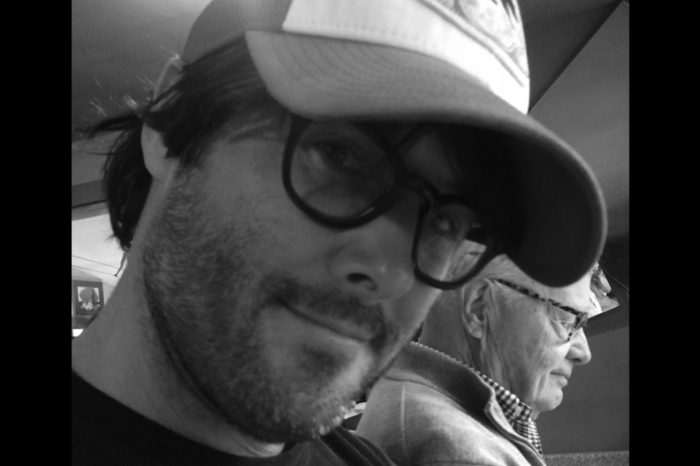
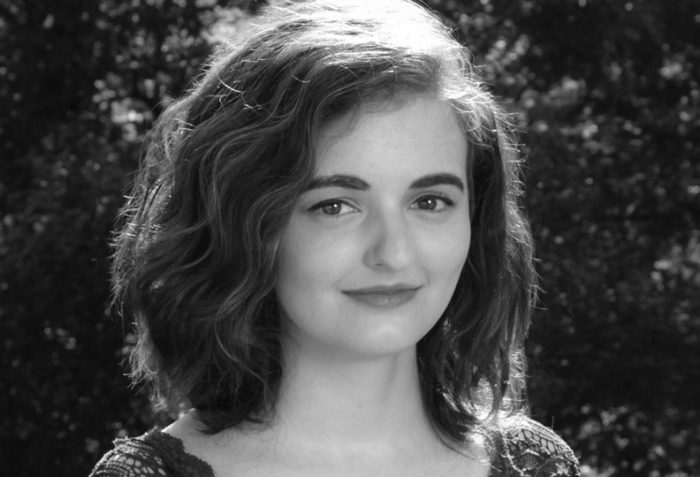
 Briana Morgan is a thriller, crime, and horror writer who loves dark, suspenseful reads, angst-ridden relationships, and complicated characters. Her interest in Jay Gatsby scares her friends and family. You can find her in way too many places online, eating too much popcorn, reading in the corner, or crying about long-dead literary heroes. She currently resides somewhere near Atlanta, Georgia. For updates on her work, visit her website,
Briana Morgan is a thriller, crime, and horror writer who loves dark, suspenseful reads, angst-ridden relationships, and complicated characters. Her interest in Jay Gatsby scares her friends and family. You can find her in way too many places online, eating too much popcorn, reading in the corner, or crying about long-dead literary heroes. She currently resides somewhere near Atlanta, Georgia. For updates on her work, visit her website, 
 In 2016, Richard C Rutherford had work accepted by Fiction Southeast, Stone Coast Review, Hypertext, Red Fez, The LA Review, Squalorly, and The Tishman Review. Upcoming in Visitant. For thirty-seven years he raised cattle at the edge of the desert. He supports local bookstores and reads DeLillo when he needs a dose of humility. He has daughters, so he’s a feminist. He has a large collection of stories.
In 2016, Richard C Rutherford had work accepted by Fiction Southeast, Stone Coast Review, Hypertext, Red Fez, The LA Review, Squalorly, and The Tishman Review. Upcoming in Visitant. For thirty-seven years he raised cattle at the edge of the desert. He supports local bookstores and reads DeLillo when he needs a dose of humility. He has daughters, so he’s a feminist. He has a large collection of stories.
 Erin Smith is a writer, funeral director, and shiatsu therapist living in the Twin Cities. A transplant from the South, she’s seen her O’s lengthen in her fourteen years in Minnesota and has learned to love All Wheel Drive. When she’s not writing, she can be found with her cat, Chloe, on her lap. Erin has been published in Liars’ League NYC, Mount Hope Magazine, Here Comes Everyone, Smoky Blue Literary and Arts Magazine, Strange Mysteries, TWJ Magazine, Anotherealm and Mortuary Management Magazine. Find her at
Erin Smith is a writer, funeral director, and shiatsu therapist living in the Twin Cities. A transplant from the South, she’s seen her O’s lengthen in her fourteen years in Minnesota and has learned to love All Wheel Drive. When she’s not writing, she can be found with her cat, Chloe, on her lap. Erin has been published in Liars’ League NYC, Mount Hope Magazine, Here Comes Everyone, Smoky Blue Literary and Arts Magazine, Strange Mysteries, TWJ Magazine, Anotherealm and Mortuary Management Magazine. Find her at 
 James Mulhern has published fiction in many literary journals and received several accolades. Three stories were selected for different anthologies of best short fiction. In 2015, Mr. Mulhern was awarded a full-paid writing fellowship to study at Oxford University in the United Kingdom. That same year, a story was longlisted for the Fish Short Story Prize. He has also received other awards. His novel, Molly Bonamici, and his collection of short stories, Assumptions and Other Stories, received favorable critiques from Kirkus Reviews and are Readers’ Favorites. The short story, “Blindfolded,” is an excerpt from Aiden’s Secret, a paranormal mystery in progress, soon to be completed.
James Mulhern has published fiction in many literary journals and received several accolades. Three stories were selected for different anthologies of best short fiction. In 2015, Mr. Mulhern was awarded a full-paid writing fellowship to study at Oxford University in the United Kingdom. That same year, a story was longlisted for the Fish Short Story Prize. He has also received other awards. His novel, Molly Bonamici, and his collection of short stories, Assumptions and Other Stories, received favorable critiques from Kirkus Reviews and are Readers’ Favorites. The short story, “Blindfolded,” is an excerpt from Aiden’s Secret, a paranormal mystery in progress, soon to be completed.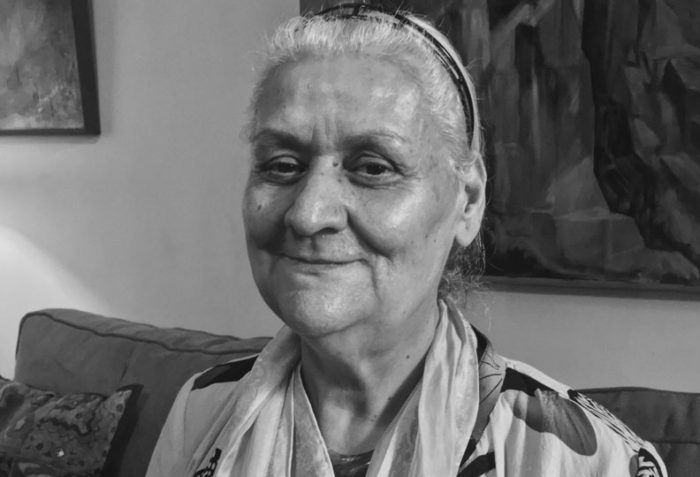
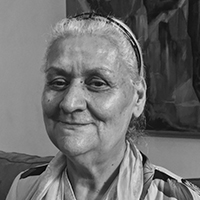 Maria Lopez is from the Andes Mountains in Colombia. She grew up in a little shack with no running water or electricity; she only had the moonlight to lead her at night. She could not read or write in Spanish as she had no education, so she had her work cut out for her when she moved to New York and had to learn English. Through working for Americans and free writing classes at the public library and colleges, she has learned to read and write English, better than she speaks it; her pronunciation leaves many Americans scratching their heads. Writing has become her newfound passion and priority.
Maria Lopez is from the Andes Mountains in Colombia. She grew up in a little shack with no running water or electricity; she only had the moonlight to lead her at night. She could not read or write in Spanish as she had no education, so she had her work cut out for her when she moved to New York and had to learn English. Through working for Americans and free writing classes at the public library and colleges, she has learned to read and write English, better than she speaks it; her pronunciation leaves many Americans scratching their heads. Writing has become her newfound passion and priority.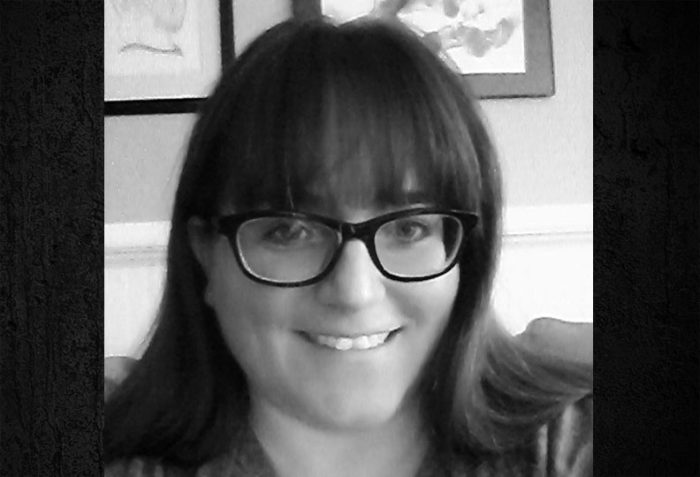
 Emily Glossner Johnson has had stories published in Postscripts to Darkness, The Outrider Review, The Linnet’s Wings, Sliver of Stone Magazine, Lynx Eye, The Mondegreen, and a number of other literary journals. She has essays in The Ram Boutique and Amygdala Literary Magazine, and an essay in the book Parts Unbound: Narratives of Mental Illness and Health, published by Lime Hawk Literary Arts Collective. She has a poem forthcoming in The Poeming Pigeon and a story forthcoming in Masque and Spectacle. In December of 2016, The Mondegreen nominated her story “Santa Lucia” for a Pushcart Prize. She has a B.A. in English from SUNY Buffalo and an M.A. in English from SUNY College at Brockport. She lives in Syracuse, New York.
Emily Glossner Johnson has had stories published in Postscripts to Darkness, The Outrider Review, The Linnet’s Wings, Sliver of Stone Magazine, Lynx Eye, The Mondegreen, and a number of other literary journals. She has essays in The Ram Boutique and Amygdala Literary Magazine, and an essay in the book Parts Unbound: Narratives of Mental Illness and Health, published by Lime Hawk Literary Arts Collective. She has a poem forthcoming in The Poeming Pigeon and a story forthcoming in Masque and Spectacle. In December of 2016, The Mondegreen nominated her story “Santa Lucia” for a Pushcart Prize. She has a B.A. in English from SUNY Buffalo and an M.A. in English from SUNY College at Brockport. She lives in Syracuse, New York.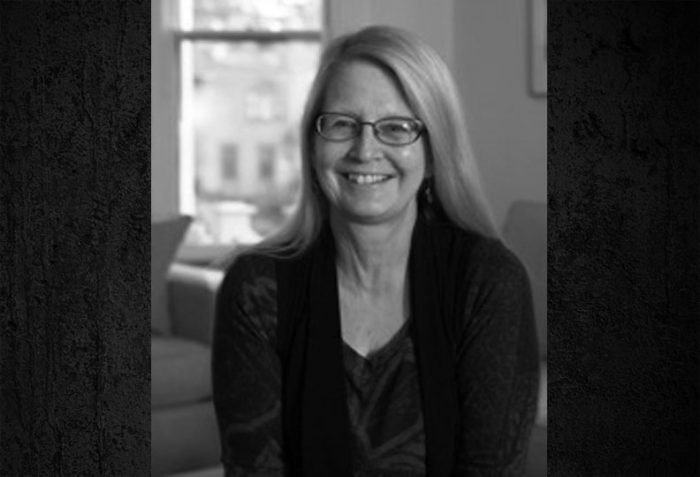
 Nancy Antle received her MFA in Creative Writing/Fiction from Southern CT State University in 2013. Prior to that she wrote books, stories and poems for children and young adults for thirty years and was published by Dial, Viking and Cricket Magazine. She is mostly writing for an older audience now and her short stories have been published by Noctua Revew, CT Review, The Los Angeles Review of LA and Drunk Monkeys. She was a volunteer writing mentor for seven years with the Afghan Women’s Writing Project via online workshops. She has also taught fiction writing at SCSU, The Mark Twain House Museum and online for the Gotham Writer’s Workshop.
Nancy Antle received her MFA in Creative Writing/Fiction from Southern CT State University in 2013. Prior to that she wrote books, stories and poems for children and young adults for thirty years and was published by Dial, Viking and Cricket Magazine. She is mostly writing for an older audience now and her short stories have been published by Noctua Revew, CT Review, The Los Angeles Review of LA and Drunk Monkeys. She was a volunteer writing mentor for seven years with the Afghan Women’s Writing Project via online workshops. She has also taught fiction writing at SCSU, The Mark Twain House Museum and online for the Gotham Writer’s Workshop.
 Mona Leigh Rose is infatuated with short stories, the shorter the better. Her work appears or is forthcoming in The Writing Disorder, Avalon Literary Review, and Jewish
Mona Leigh Rose is infatuated with short stories, the shorter the better. Her work appears or is forthcoming in The Writing Disorder, Avalon Literary Review, and Jewish 
 Josh Trapani is a scientist turned policy wonk who lives just outside Washington, D.C. He helped start the Washington Independent Review of Books and served as its first managing editor. His fiction and humor have appeared in Parent Co, The Big Jewel, The Del Sol Review, Neutrons Protons, Brick Moon Fiction, The Higgs Weldon, and others.
Josh Trapani is a scientist turned policy wonk who lives just outside Washington, D.C. He helped start the Washington Independent Review of Books and served as its first managing editor. His fiction and humor have appeared in Parent Co, The Big Jewel, The Del Sol Review, Neutrons Protons, Brick Moon Fiction, The Higgs Weldon, and others.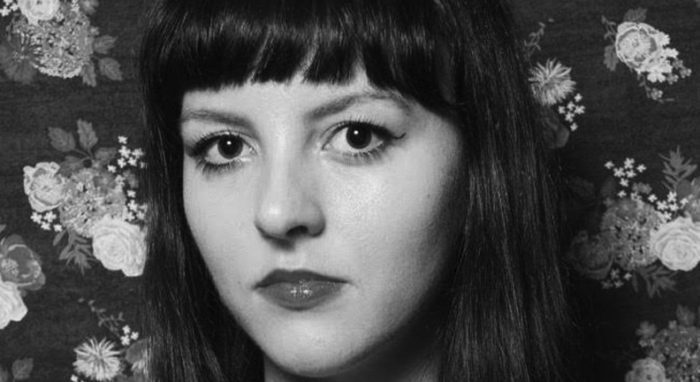
 Sola Saar was born in southern California and lives in New York. Her nonfiction work has been featured in The Huffington Post, Flaunt, Bullett, Hyperallergic, Whitewall Magazine, Salon, and ArtSlant. An excerpt from her novel was featured in Ishmael Reed’s Konch magazine. She graduated from UC Berkeley and is getting her MFA in Fiction at Columbia University.
Sola Saar was born in southern California and lives in New York. Her nonfiction work has been featured in The Huffington Post, Flaunt, Bullett, Hyperallergic, Whitewall Magazine, Salon, and ArtSlant. An excerpt from her novel was featured in Ishmael Reed’s Konch magazine. She graduated from UC Berkeley and is getting her MFA in Fiction at Columbia University.
 Megan Fahey received her MFA from West Virginia University in 2017. In addition to having some short plays produced, her work has appeared in Southern Humanities Review, The Tulane Review, and Blinders Journal.
Megan Fahey received her MFA from West Virginia University in 2017. In addition to having some short plays produced, her work has appeared in Southern Humanities Review, The Tulane Review, and Blinders Journal.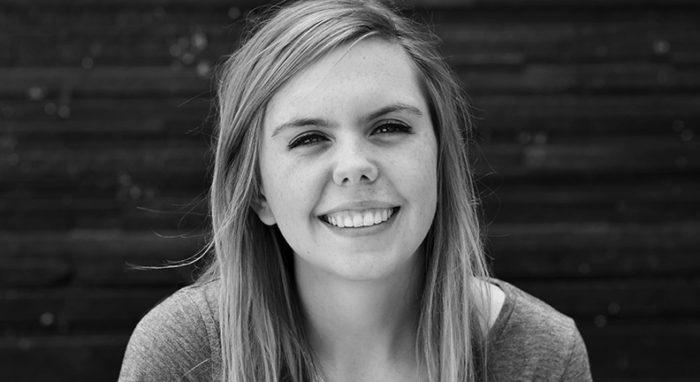
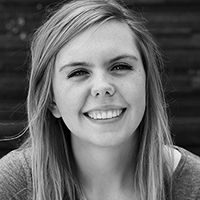 Abbey is a senior English and Creative Writing major for a B.A. degree at Indiana Wesleyan University. She has poetry published in her school’s literary magazine, Caesura, but this is her first short story to be published in a recognized literary journal. She is currently an editorial assistant for a small academic publishing company and hopes to eventually edit works of fiction and creative nonfiction. She believes fiction can be a powerful source of social commentary.
Abbey is a senior English and Creative Writing major for a B.A. degree at Indiana Wesleyan University. She has poetry published in her school’s literary magazine, Caesura, but this is her first short story to be published in a recognized literary journal. She is currently an editorial assistant for a small academic publishing company and hopes to eventually edit works of fiction and creative nonfiction. She believes fiction can be a powerful source of social commentary.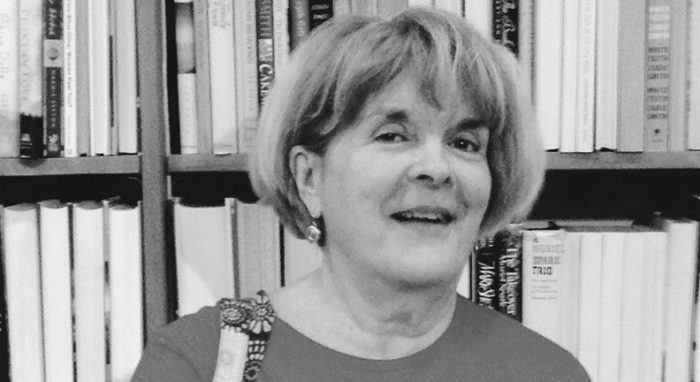
 Mary Grimm has had two books published, Left to Themselves (novel) and Stealing Time (story collection) – both by Random House. She teaches fiction writing at Case Western Reserve University.
Mary Grimm has had two books published, Left to Themselves (novel) and Stealing Time (story collection) – both by Random House. She teaches fiction writing at Case Western Reserve University.
 Henry F. Tonn is a semi-retired psychologist who has previously published fiction and nonfiction in journals such as the Gettysburg Review, Connecticut Review, Fifth Wednesday Journal, and Eclectica. He also has two previous publications in The Writing Disorder. The present story, “The Engagement of Zelda Sayre to F. Scott Fitzgerald,” is excerpted from the second chapter of an unpublished novel entitled Ascent to Madness: Zelda Fitzgerald’s Gilded Cage. Though fiction, the novel follows with relative historical accuracy this fascinating woman’s life, the roaring ‘20’s, and her eventual descent into psychosis.
Henry F. Tonn is a semi-retired psychologist who has previously published fiction and nonfiction in journals such as the Gettysburg Review, Connecticut Review, Fifth Wednesday Journal, and Eclectica. He also has two previous publications in The Writing Disorder. The present story, “The Engagement of Zelda Sayre to F. Scott Fitzgerald,” is excerpted from the second chapter of an unpublished novel entitled Ascent to Madness: Zelda Fitzgerald’s Gilded Cage. Though fiction, the novel follows with relative historical accuracy this fascinating woman’s life, the roaring ‘20’s, and her eventual descent into psychosis.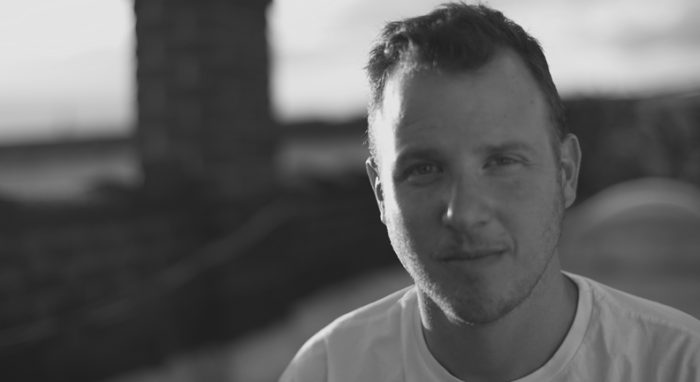
 Etan Nechin is an Israeli born writer, currently living in Brooklyn, NY. His fiction and essays were published at ZYZZYVA, Apogee, Columbia Journal Potluck Magazine, MonkeyBicycle, Entropy, MutualArt and more. He
Etan Nechin is an Israeli born writer, currently living in Brooklyn, NY. His fiction and essays were published at ZYZZYVA, Apogee, Columbia Journal Potluck Magazine, MonkeyBicycle, Entropy, MutualArt and more. He 
 Jesse Downing was the 2016 Moss Point High School valedictorian and is a current student at Millsaps College. His hobbies include writing, drawing, singing, and coding.
Jesse Downing was the 2016 Moss Point High School valedictorian and is a current student at Millsaps College. His hobbies include writing, drawing, singing, and coding.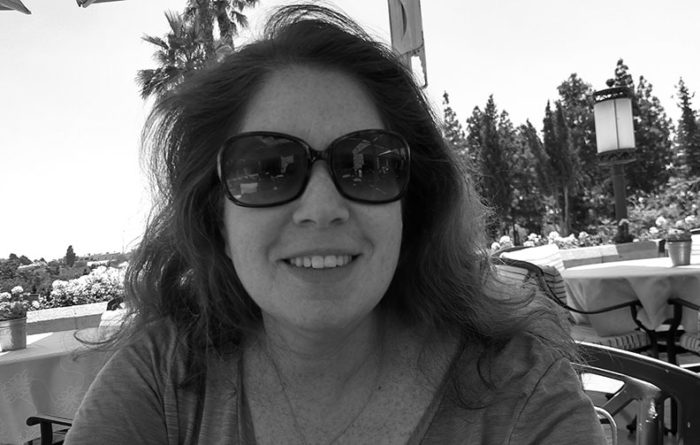
 Susan Kleinman’s short stories have appeared in The Baltimore Review, Inkwell, the William and Mary Review,
Susan Kleinman’s short stories have appeared in The Baltimore Review, Inkwell, the William and Mary Review, 
 Katie Strine tolerates life through literature with a side of bacon and dark beer. She lives in the east suburbs of Cleveland with her quirky family — husband, son and dog — who accompany her on oddball adventures. Stay in touch via LinkedIn for more.
Katie Strine tolerates life through literature with a side of bacon and dark beer. She lives in the east suburbs of Cleveland with her quirky family — husband, son and dog — who accompany her on oddball adventures. Stay in touch via LinkedIn for more.